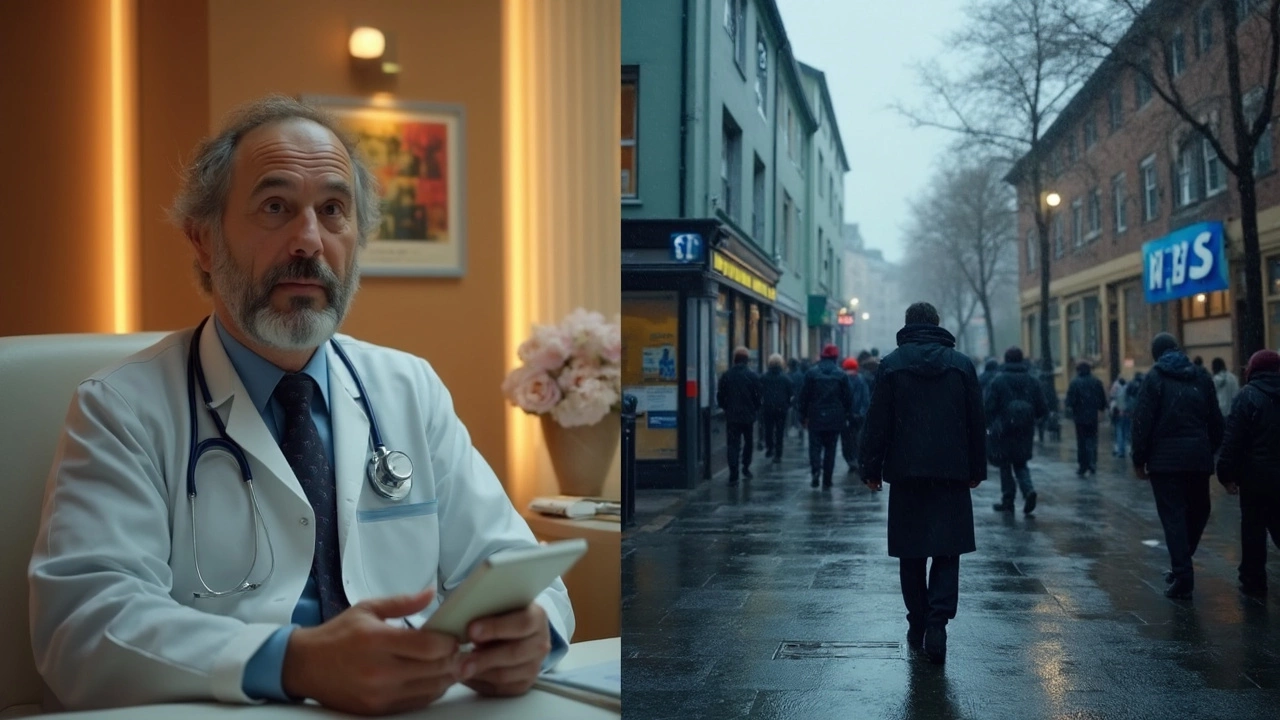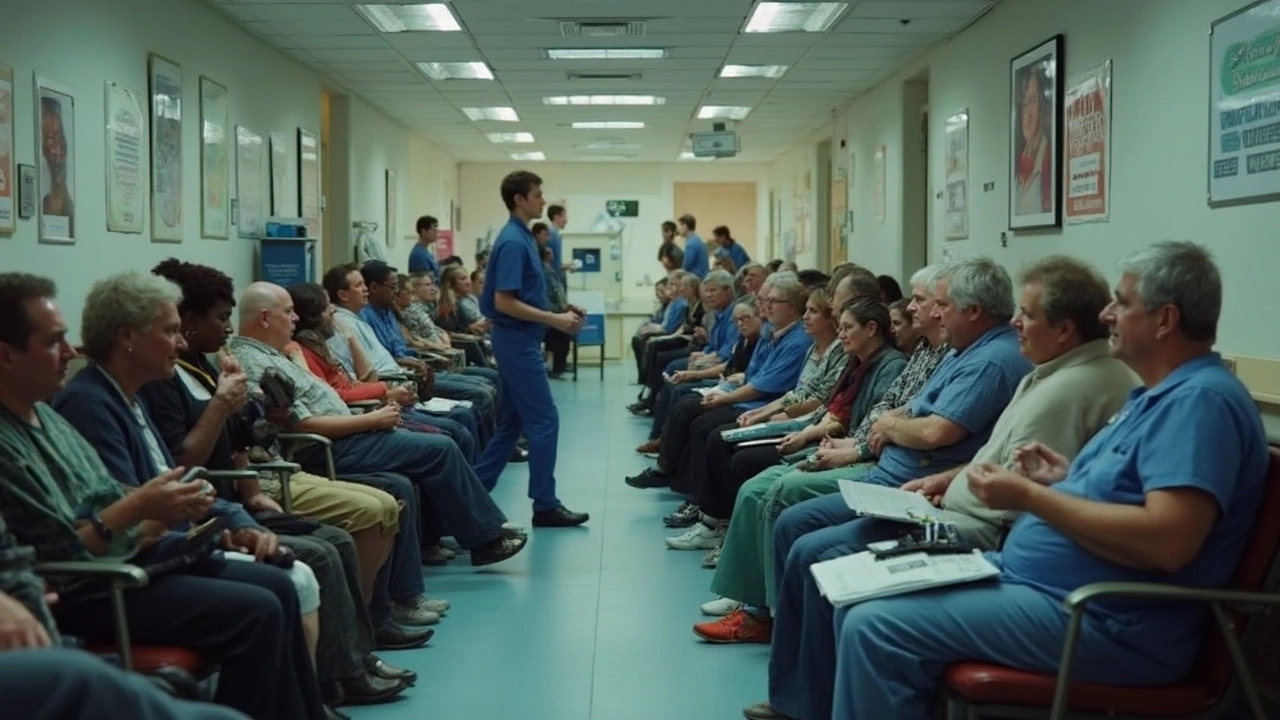Everyone loves the idea of free healthcare, right? Who wouldn’t want to stroll into a doctor’s office without worrying about the bill? But there’s a darker side most people don’t mention when they talk up these systems.
If you’ve ever waited weeks—or even months—to see a specialist, you know what I mean. Free healthcare often comes with delays that can leave you hanging when you need help the most. Sure, you’ll get treatment eventually. But that “eventually” can feel like forever, especially if you’re in pain or anxious about symptoms.
And choices? Well, forget about picking your dream doctor or jumping at the newest treatment on the market. With free healthcare, you’re usually limited to what’s covered. Some medicines and surgeries just don’t make the cut, no matter how much they might change your life.
There’s more, of course, especially when you start comparing free and private healthcare head-to-head. Let’s break down the blunt truths so you know what you’re really signing up for—and how to work the system to your own advantage.
- Long Waiting Times and Delays
- Limited Treatment Options
- Impact on Healthcare Quality
- Why Some Choose Private Healthcare
Long Waiting Times and Delays
If you’ve spent time using free healthcare systems in places like the UK or Canada, you probably know all about waiting. It’s one of those issues nobody likes to talk about—but it hits home fast when you’re stuck waiting for months to see a specialist or get surgery. In the UK, people waited an average of 14 weeks for non-urgent hospital treatment in 2024. That’s more than three months, just to get started.
These delays happen for a simple reason. When healthcare is free, demand usually goes up. People book appointments for minor stuff and bigger problems, clogging the schedule. But there aren’t enough doctors or resources to keep up, so everyone, even patients with more serious needs, can get stuck in line.
Common areas with the worst delays include:
- Specialist checkups (cardiology, orthopedics, dermatology, and more)
- Non-emergency surgeries (joint replacements, cataract removal)
- Mental health services (counseling, therapy sessions)
Emergencies still get fast-tracked in free systems, but if your case isn’t life-or-death, expect to wait. That can lead to problems getting worse before you’re seen.
Here’s a snapshot to show how waiting times stack up:
| Country | Average Wait for Non-Urgent Surgery (2024) |
|---|---|
| UK (NHS) | 14 weeks |
| Canada | 27 weeks |
| Australia | 18 weeks |
What can you do? If you’re stuck with a long wait, try these tips:
- Keep following up. Sometimes being persistent puts you on the radar for cancellations.
- Ask your doctor if there are faster alternatives or if private help could speed things up.
- For recurring issues, see if telehealth or group classes are available—they may be quicker than in-person visits.
Bottom line: Long waits are the trade-off for free healthcare. It’s frustrating, and people with private healthcare almost always get seen sooner. That’s part of the reason some folks decide to go private, even if it costs more.
Limited Treatment Options
One of the big headaches with free healthcare is you don’t always get the treatment you want—or even the one your doctor thinks is best. Most government-funded systems have strict lists of approved drugs, procedures, and even hospitals you’re allowed to use. If something isn’t covered, you’re out of luck unless you pay out of pocket or turn to private healthcare.
For example, in the UK’s NHS, not all cancer drugs available in other countries are routinely offered. Some people find themselves stuck with older treatments that are fully covered, while newer, more effective ones aren’t on the list. That’s not just hype—according to Cancer Research UK, roughly 1 in 5 new cancer drugs licensed worldwide take at least a year longer to be accessible through the NHS compared to private insurance in the UK or systems in the US.
This isn’t just a UK thing. Canada also limits certain surgeries and tests, with hip and knee replacements sometimes backed up for months because only a set number can be done each year. If the quota is full, the wait resumes—unless you go private.
If you’re dealing with a rare disease, buckle up. Many rare illnesses don’t have common, approved treatments, so free healthcare systems may leave you scrambling while private coverage might step in for experimental therapies, faster referrals, or out-of-network specialists.
Let’s be real: having insurance doesn’t always guarantee every option. Even private plans have fine print. But the pool of available treatments is much wider when you’re not limited by what’s “approved” for full coverage.
- Newer medicines may face delays or bans in public systems
- Some tests or surgeries require long appeals processes
- Specialists can be hard to access, especially outside major cities
| Country | Drug Approval Wait (avg.) | Private Access |
|---|---|---|
| UK (NHS) | 12-18 months | Often available instantly |
| Canada | 9-14 months | 2-4 months |
| USA (private) | 2-4 months | Immediate with coverage |
The takeaway? Free isn’t always fast, flexible, or up-to-date when it comes to what treatment you’re actually offered.

Impact on Healthcare Quality
Here’s where things get real with free healthcare. Offering medical care to everyone sounds like a dream until resources start to stretch thin. When the budget is fixed, and everyone’s using the service, something’s got to give—often, it’s the quality of care people actually receive.
Many public healthcare systems, like the NHS in the UK or Canada’s single-payer model, run into classic issues: crowded hospitals, burned-out staff, and not enough funding for the latest equipment. Research from the British Medical Association shows that long-term underfunding has led to over 7 million people in England waiting for treatment. Hospital staff regularly work overtime, and seeing the same doctor every time isn’t guaranteed.
| Country | Avg. Wait Time for Specialist (days) | Doctor Visits per Person (year) |
|---|---|---|
| UK (NHS) | 65 | 5.0 |
| Canada | 90 | 6.8 |
| USA (Mostly Private) | 20 | 4.0 |
When everyone relies on the same government-funded service, the system has to make tough choices. That can mean older buildings, outdated MRI scanners, and staff who are constantly covering gaps. Private healthcare providers, on the other hand, are out to impress—so they usually invest more in modern tech and customer experience.
So, while you won’t get a bill for seeing a doctor under a free system, you might end up waiting in a crowded waiting room, seeing a different nurse each time, or getting care that’s good but basic. If you want an upgrade—like a private room or a top surgeon—you’ll often need to dip into private healthcare anyway.
Bottom line: free healthcare covers a lot of ground, but when it comes to personal attention and cutting-edge treatments, the quality gap between public and private systems gets hard to ignore. That’s a big reason some folks choose to pay extra, even if free care is right there for the taking.
Why Some Choose Private Healthcare
So what makes people ditch free healthcare for private options? It usually comes down to speed, choice, and comfort. With private healthcare, there’s rarely a line. You can schedule appointments within days (sometimes even the next day), which is a game-changer if you’re dealing with something urgent or just hate waiting around.
Private healthcare also means more options. You often get to pick your doctor—sometimes even your hospital or surgeon. If you care about consistency and having someone familiar with your history, that’s a big draw. Plus, if a newer treatment or medication hits the market, private clinics are usually quicker to offer it versus sticking to a tight government budget.
Comfort matters, too. Private hospitals tend to look and feel more like hotels than clinics. Think private rooms, better food, less noise, and shorter stays. That comfort can make a tough time feel a little less stressful.
Here’s a glimpse at some real numbers to put things in perspective:
| Public System | Private Healthcare | |
|---|---|---|
| Average Specialist Wait | 8-14 weeks | 2-7 days |
| Choice of Doctor | Usually Assigned | Usually Patient Choice |
| New Treatments | Slower Adoption | Faster Access |
People also go private for peace of mind. If you’ve got long-term issues or you just worry a lot, not having to fight the system for appointments or approvals can take a lot of stress off your plate.
And here’s something practical: some folks get private insurance just for backup. That way, you can use free healthcare for routine things but have the private option in your back pocket, just in case you ever need to skip the line or want something extra.
The extra cost? Sure, it’s a factor. But for plenty of people, the benefits of speed, choice, and comfort outweigh what it does to their bank account. The point is, private healthcare offers stuff the free systems often can’t, and that’s why so many people are willing to pay for the upgrade.
